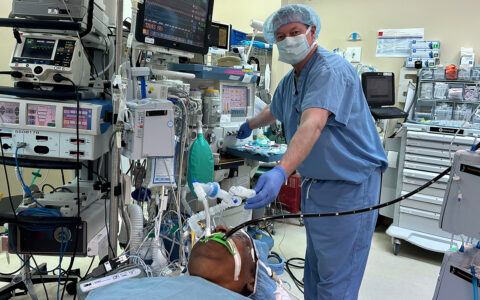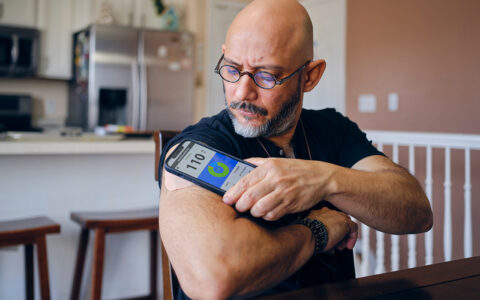Research has confirmed that women who undergo menopause before age 45 are at an increased risk of heart failure, cardiovascular disease and other conditions. Now, a link has recently been reported between late menopause and heart failure – with an important role for obesity.
Endocrinologist Melissa Wellons, M.D., of Vanderbilt University Medical Center is studying the association in collaboration with colleagues across the United States.
“Our research shows that having late menopause and obesity together increases the risk of heart failure. That pattern isn’t strong in women with a normal BMI.”
“Our research shows that having late menopause and obesity together increases the risk of heart failure,” Wellons said. “That pattern isn’t strong in women with a normal BMI.”
The novel finding suggests that maintaining a healthy weight may be protective against future heart failure in those who experience menopause at a later age.
Early Menopause and CVD
Back in 2012, Wellons, an expert on ovary function and chronic disease, led a study flagging early menopause as predictive of coronary artery disease and stroke. Thanks to this work and that of numerous others, transitioning into menopause early is well-recognized as a significant concern for heart health.
While the average age of menopause in the United States is 50 to 52 years, the occurrence of menopause before age 45 is considered early, and on or after age 55 is considered late, Wellons said.
“In the most recent guidelines on the prevention of cardiovascular disease, early menopause is identified as a risk factor and something to look out for.”
Obesity in Late Menopause
Another known risk factor for heart disease is obesity, accounting for 14 percent of heart failure cases in women.
With this association in mind, a research team that included Wellons sought to understand how obesity altered the relationship between menopausal age and heart-failure incidence. Their hypothesis was that obesity may place women who experience menopause early at an even greater risk of heart failure.
But surprisingly, their study revealed the opposite; the most significant effect of obesity on heart failure risk was in women who experienced menopause late.
“The known relationship between early menopause and heart failure was there and consistent,” Wellons said. “However, the attributable risk of obesity and overweight status for heart-failure incidence was greatest in women who experience menopause on or after age 55.”
“This is an example of epidemiologic work that supports intervention,” she added.
Menopause Staging
Menopause transition is related to the supply of oocytes in the ovaries. Therefore, in an effort to predict menopause timing and future cardiovascular risk, Wellons also has led research to identify biomarkers of egg number, with a focus on anti-Müllerian hormone (AMH).
The blood-based biomarker, useful as a diagnostic, tracks with egg number: low levels indicate a low supply of eggs and potentially early menopause, while high levels signal a larger supply of eggs, later menopause, and even polycystic ovary syndrome (PCOS).
“It’s nice to have a tool, and a tool with meaning,” said Wellons.
Use of AMH levels to better understand menopause staging can help patients get ahead of risks related to bone, reproductive, and heart health, while insight into PCOS status can inform treatment and prevent complications related to infertility, miscarriage, diabetes and more, she said.
“Women with early menopause are more likely to experience osteoporosis while those with later menopause are at a higher risk of reproductive cancers,” the researcher said.
“You want to be able to tell someone earlier in life that they have a risk of something later in life so that you can better tailor and counsel patients regarding the preventive interventions that are available to them.”





